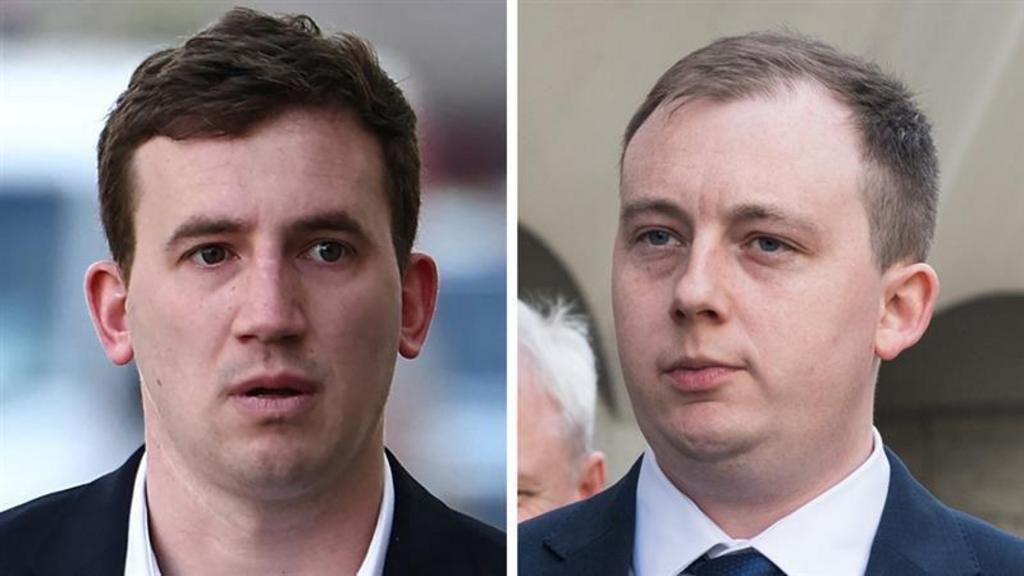A high-profile espionage case in the UK, involving two men accused of spying for China, collapsed due to the prosecution’s inability to secure governmental evidence characterizing China as a national security threat, according to the Director of Public Prosecutions.
Sir Keir Starmer highlighted that the government could only rely on the previous Conservative administration’s assessment of China, which described the nation as an “epoch-defining challenge,” falling short of the necessary threshold.
The charges against Christopher Cash, 30, and Christopher Berry, 33, were dropped in September, a decision that drew criticism from ministers and members of parliament. Both men have denied the allegations.
Stephen Parkinson, the Director of Public Prosecutions, stated that sufficient evidence existed to bring charges in April 2024. However, a precedent established by a separate espionage case raised the bar for convictions under the Official Secrets Act.
The Crown Prosecution Service (CPS) reportedly made “efforts to obtain” further evidence from the government “over many months.” However, the provided witness statements failed to meet the evidentiary threshold required to proceed with the prosecution.
Mr. Parkinson clarified that the evidence needed to establish that China was “a threat to national security” at the time of the alleged offenses committed by Mr. Cash and Mr. Berry.
The Prime Minister has stated that the government’s characterization of China could not be retroactively altered and had to be based on “the position of the last government.”
The government has consistently expressed “frustration” regarding the trial’s collapse. Mr. Parkinson’s statement follows weeks of speculation surrounding the reasons for the prosecution’s abandonment.
Mr. Cash, a former parliamentary researcher, and Mr. Berry were accused of gathering and providing information prejudicial to the safety and interests of the state between December 2021 and February 2023.
The Official Secrets Act stipulates that individuals accused of espionage can only be prosecuted if the information they passed on was useful to an enemy.
Last month, Mr. Parkinson stated in a letter that “the case could no longer proceed to trial since the evidence no longer met the evidential test,” but refrained from detailing the reasons.
In his most recent letter, addressed to MPs, he explained that he was taking the “unusual” step of sharing more details because “government briefings have been provided commenting on the evidential situation.”
Mr. Parkinson referenced a trial earlier this year involving Bulgarian nationals spying for China, which established that, under the Official Secrets Act, an enemy “includes a country which represents at the time of the offence, a threat to the national security of the UK.”
This ruling, he said, meant that “further evidence should be obtained” from the government to proceed with the prosecution, but that the necessary evidence was not “forthcoming.”
Mr. Parkinson added, “Efforts to obtain that evidence were made over many months, but notwithstanding the fact that further witness statements were provided, none of these stated that at the time of the offence China represented a threat to national security.”
The Sunday Times previously reported that senior Whitehall officials convened to discuss the trial early last month, prior to the charges being dropped.
Number 10’s press secretary stated on Monday that “the suggestion that the government withheld evidence, withdrew witnesses or restricted the ability of a witness to draw on a particular bit of evidence are all untrue.”
Since last year’s general election, the Labour government has signaled a desire to reset relations between the UK and China, conducting a cross-Whitehall “audit” of Britain’s relationship with the country.
In October 2024, David Lammy became only the second foreign secretary in six years to visit China, where he stated that Beijing and London should “find pragmatic solutions to complex challenges.”
The UK’s national security adviser, Jonathan Powell, a key advisor and political ally of Sir Keir Starmer, also visited the country earlier this year.
The trip, which occurred in July, was not announced by the UK government but became public when the Chinese government released details of a meeting between Mr. Powell and the Chinese Foreign Minister Wang Yi.
Beijing reported that Mr. Powell had “expressed Britain’s willingness to enhance dialogue and communication with China to build a stable, practical and long-term partnership.”
Hundreds of hikers have been guided to safety in Tibet after becoming trapped over the weekend by heavy snowfall.
The Shenzhen-based electric car maker says the UK is now its biggest market outside China.
At least one hiker has died and hundreds are still stranded near the mountain’s eastern face.
Beijing has urged local firms to use homemade chips. But is China ready to turn away from Nvidia?
India’s IndiGo airline said that it would restart direct flights between Kolkata and Guangzhou from 26 October.

